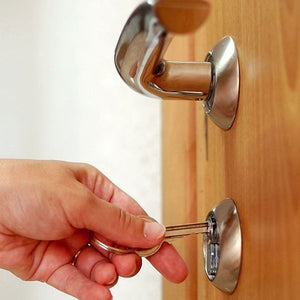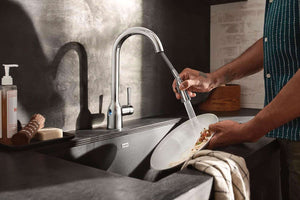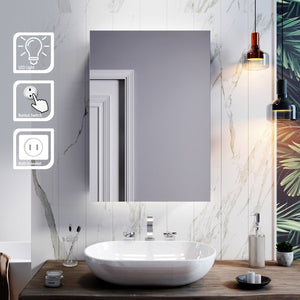
Common Door Lock Problems
Door locks provide us a sense of security and privacy while protecting our homes, places of work, and industrial buildings. However, there are times when these locks have problems that might endanger our security. This blog will explore common problems with door locks and offer practical fixes for them.
A Minor Issue Can Lead to Major Problems
Unfortunately, many homeowners overlook addressing these types of lock issues until they experience a break-in or a key break. The reality is, no one wants to be locked out of their home due to a door lock problem that could have been resolved months earlier.
Identifying and Resolving Common Door Lock Issues
We will cover a wide range of problems with this post, including crooked locks, blocked keys, and more. You'll probably find answers here if any of these issues are bothering you. Let's examine the most common problems homeowners have with door locks. While we may not cover every possible problem, these should encompass the ones you're most likely to face. For issues that can be resolved without professional assistance, we'll offer straightforward guidance on the quickest and most efficient solutions.
Difficult to Operate Door Locks

You could see that the locking mechanism on external wooden or uPVC doors with a key operated mortise lockset or euro cylinder gets stiffer and slower with time. In addition to being annoying, especially when you're pressed for time, a stiff lock poses a serious risk to your safety if you need to flee your home quickly in the event of a fire. The collection of dirt and filth from outside exposure, which coats the lock's components and causes friction and corrosion, is the primary cause of this stiffness.
How to Fix itPrior to choosing a replacement, you can attempt a do-it-yourself cleaning technique by using needle-nose pliers to push a cotton swab through the keyhole. Just take care not to let the swab fall out of the lock by mistake!
A Faulty Mechanism

If your door lock is older, it's possible that regular wear and tear or poor upkeep will make it difficult to lock or open. It could be time to get a new door lock because door locks are complex devices that break down with time!
How to Fix itA broken lock mechanism may be easy for you to repair yourself if you're mechanically inclined, but for people who aren't trained, the intricacy of the internal components might be intimidating.
A Jammed Door Lock

A major issue arises when a door lock's mechanism becomes jammed and you are unable to lock or unlock it. A major cause of this problem is debris and dirt accumulation inside the keyhole, which stops the locking bolt from operating as it should.
How to Fix itThe good news is that a toothpick or an old toothbrush may frequently be used as an easy DIY cure to fix this problem. These implements can assist in removing the obstruction-causing debris. In order to assist loosen things up, you may also try spraying some oil into the keyhole if the issue continues.
Key Doesn't Turn the Lock

Make sure you are using the right key and that it is not broken or damaged if you are unable to spin the latch mechanism to open the door despite not seeing any obvious blockage in your door lock. If everything seems OK with your key, there can be a problem stopping it from turning. You want to avoid pushing the key since doing so might cause it to become trapped in the unlocked position.
How to Fix itIf attempting these solutions has no effect, it's possible that internal components of your lock have worn out or broken. If broken keys are involved, you may need to consider shopping for replacement door locks or contacting professional locksmith services for assistance.
Loose Internal Components

Modern door locks are composed of various components including the latch bolt, cylinder, intricate pins, and more. Over time, wear and tear can affect these internal mechanisms, leading to component damage or breakage, resulting in lock problems. Even screws can gradually come loose, causing internal components to become less stable and operate improperly. Using a screwdriver to tighten the loose screws might be an easy solution if your door lock is having problems. But, you'll probably have to replace the complete mechanism if the issue is caused by damaged or broken internal components. Even in situations when repairing internal components necessitates the knowledge of a skilled locksmith, replacing the mechanism could be more economical than trying a repair.
How to Fix itProtect and safeguard your property. To guarantee the protection and safety of your property, it is imperative that you swiftly fix any difficulties related to your door locks, regardless of their origin.
Conclusion
We all prioritize feeling secure in our own homes. The right door lock provides the peace of mind we seek, but occasional issues arise that should not be overlooked. It's essential to understand which type of lock suits your security requirements best, whether certain brands are more reliable than others, and how to spot signs of tampering with your locks.
When it comes to repairing a door lock yourself, caution is necessary as improper handling could compromise your security. Hiring a professional may involve higher initial costs, but it guarantees that any issues with your door locks will be addressed correctly and with minimal risk of further damage or compromise to your security.
Buy Door Locks


